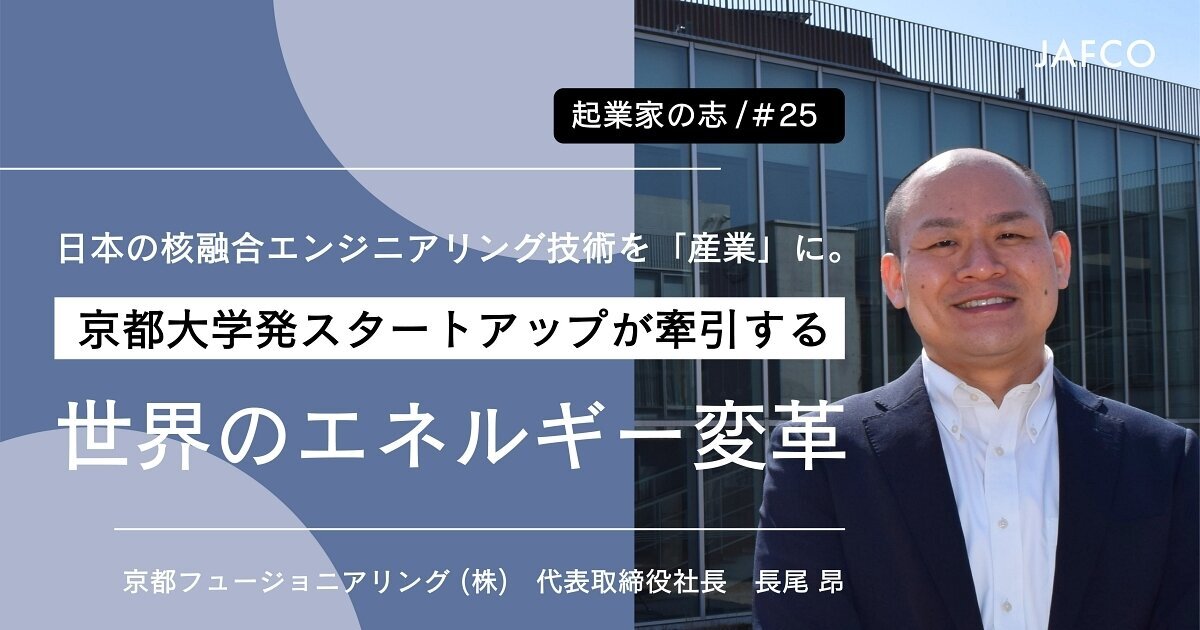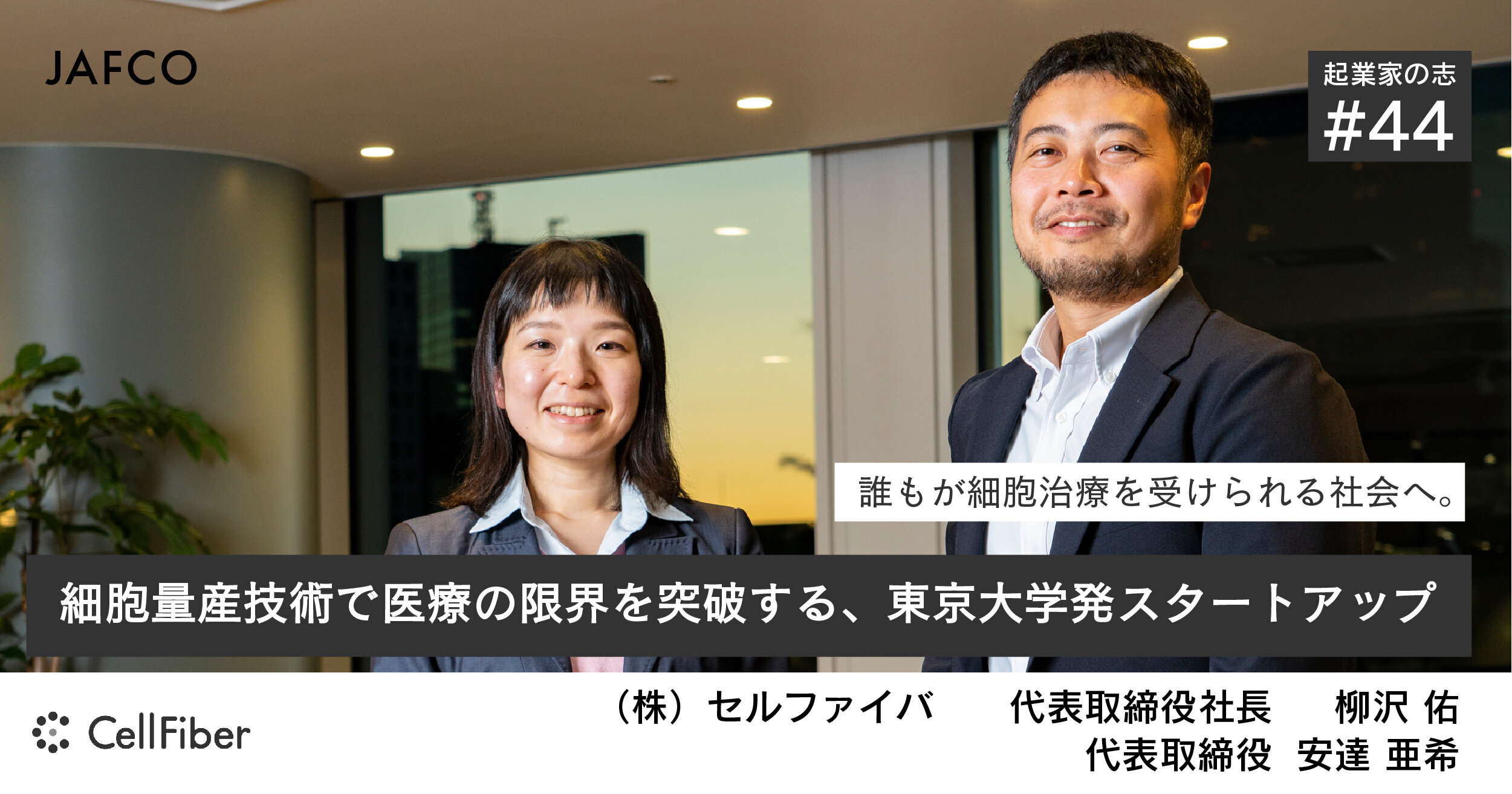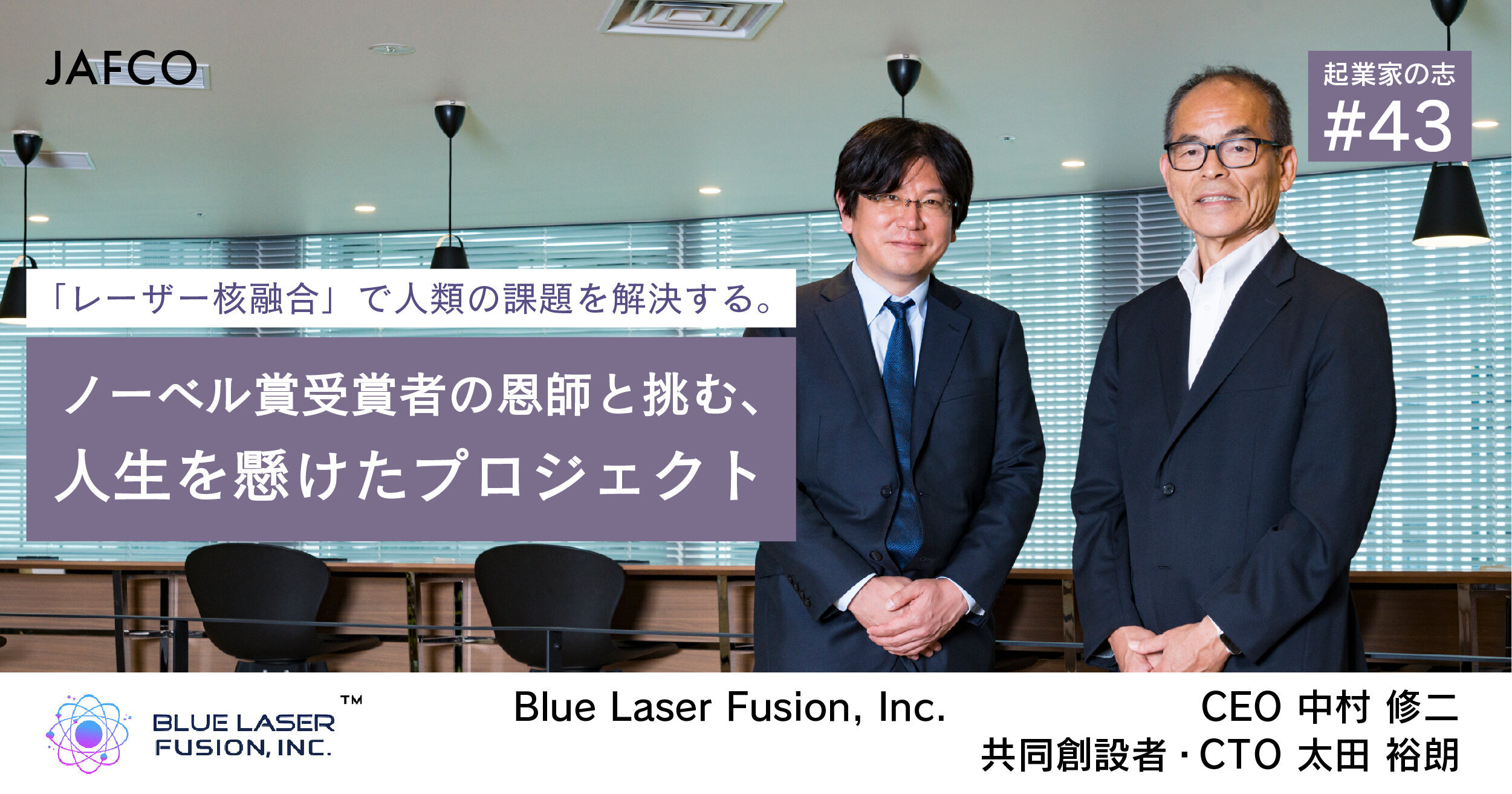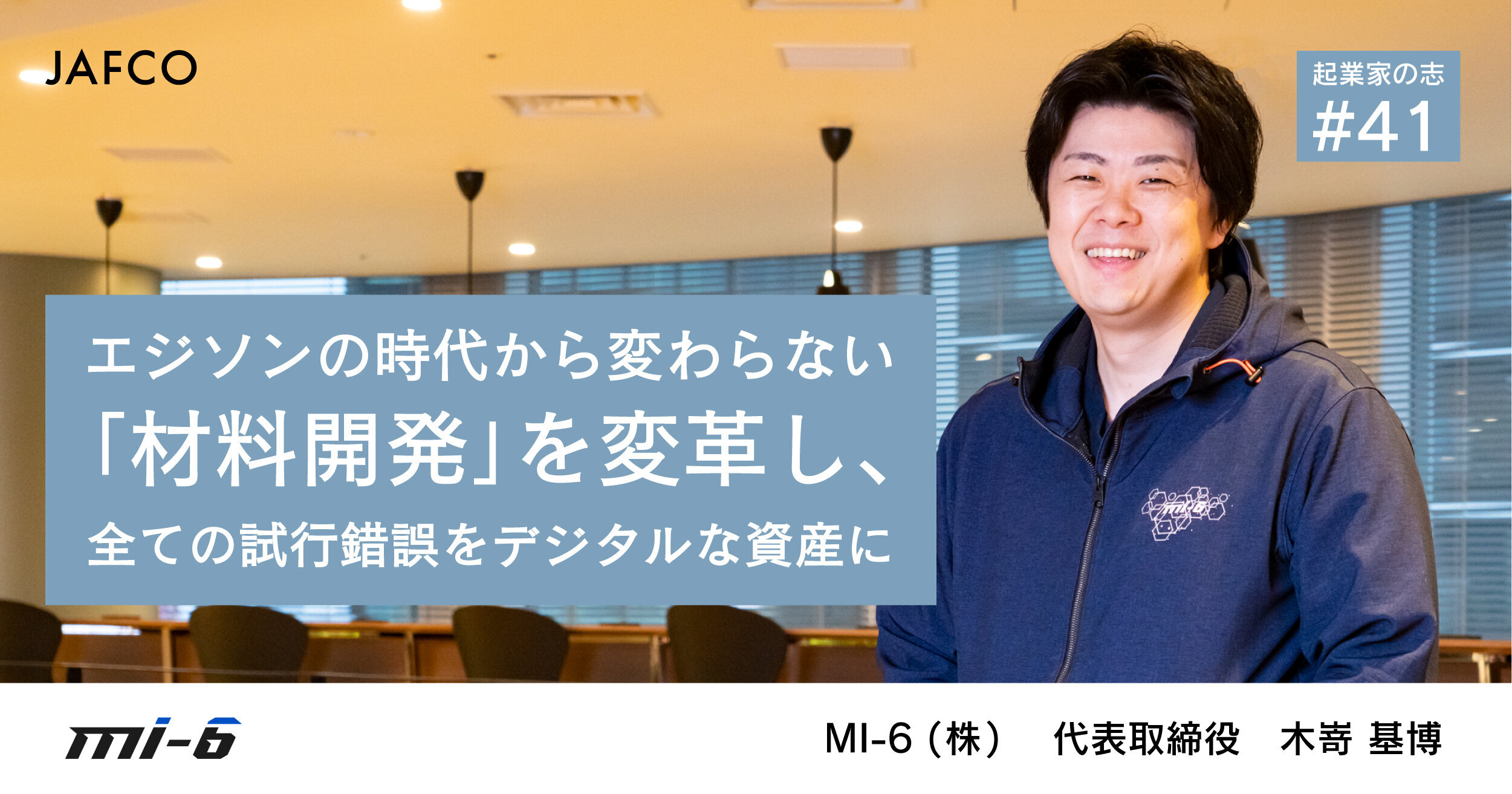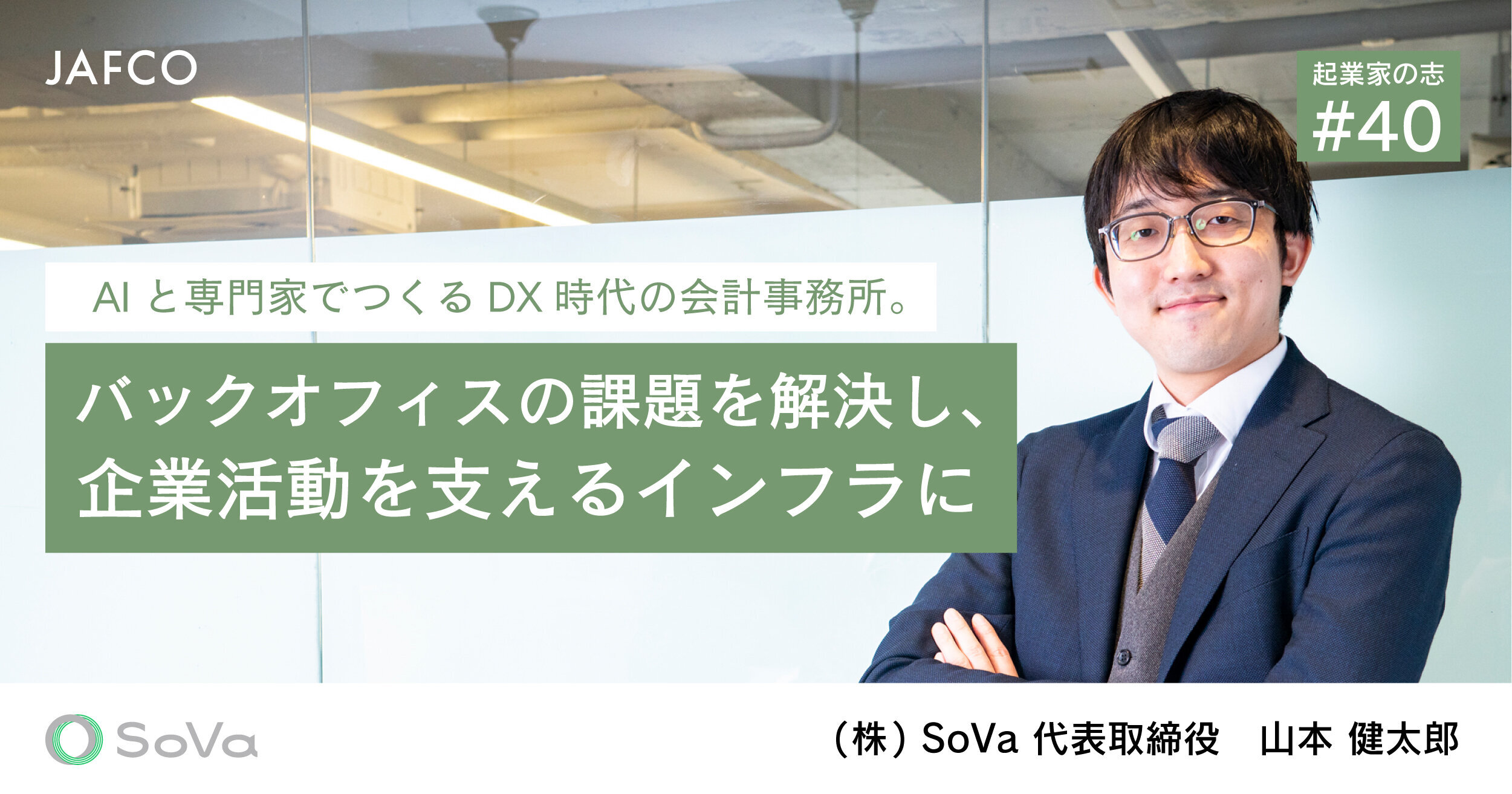"Entrepreneurial aspirations" to hear the background of deciding to start a business, the conflict until the business gets on track, and the desire to realize through the business.
In the 25th meeting, we interviewed Mr. Akira Nagao, President and CEO of Kyoto Fusioneering ltd., a startup from Kyoto University that develops fusion engineering business.
【profile】
Takashi Nagao, President and CEO of Kyoto Fusioneering ltd.
Established Kyoto Fusioneering ltd. as a founder in 2019. As a representative director, he launched a fusion business starting from lab-scale research and development, and promoted strategy planning, financing, and recruitment of human resources. Prior to the establishment of KF, he led strategic consulting for new businesses at Arthur D. Little Japan, listing of Mothers at energy startup Eneris, capital and business alliance, and R & D using AI. Collaborative researcher at Kyoto University. Master of Science and Engineering, Kyoto University.
[What's Kyoto Fusioneering ltd.]
Kyoto Fusioneering ltd. is a company established in 2019 based on the knowledge of Kyoto University. We are conducting research and development of advanced technologies for the realization of a carbon-neutral society, and in particular, we have the world's leading technological capabilities in fusion plant engineering, plasma heating equipment, and energy extraction equipment. By providing our high-performance and innovative engineering solutions to the world, we will collaborate with fusion research institutes and operating companies around the world to accelerate the commercialization and commercialization of fusion, and the ultimate cleanliness for humankind. We aim to provide energy and achieve carbon neutrality.
I want to revitalize Japanese industry from the business side
-After studying mechanical science and engineering at Kyoto University Graduate School, I got a job at a consulting firm instead of a researcher or engineer. Can you tell us how that happened?
From an early age, I loved space and science fiction and went on to the engineering path, but I felt that Japan could export more infrastructure technology in the first place. Whether it's the Shinkansen or the rocket, while the technology is high, I thought there was still more work to be done in terms of commercialization. Therefore, I wanted to support the Japanese technology industry from the business side, so I decided to get a job at a consulting firm specializing in the manufacturing industry and infrastructure companies.
While engaging in the work of creating new businesses at the consulting farm, I came across a field called "smart grid." Attracted by the potential to create new industries, four years later I changed jobs to an energy startup working on smart grids. In a position like the president's right arm, I was entrusted with the launch and expansion of new businesses and the listing of Mothers, which was unprecedented in energy companies at that time.
-What kind of change did you have in your mind from that point to starting a business?
After listing on Mothers, the management system changed and large companies participated in the management. It was good for the company in itself, but I had a strong desire to create a new business or company myself, so I started thinking about graduating. So, when I reconsidered what this company couldn't do, I wanted to do a "large-scale power supply," which is also the basis of energy supply. As for the trend in the world, in recent years, there has been an awareness of the problem of being overly focused on distributed power sources and lacking a balance with large-scale centralized power sources in the energy mix.
My house is a family of business owners. With that background, I was in an environment where I was thinking about "what is management" and "what is it like to hire people with money" from an early age. I always had the feeling that I would be a manager someday. That's why I naturally became aware of entrepreneurship.

-"" Please tell us how you decided to start a business under the theme of "nuclear fusion."
The reason was that I met Professor Tetsuyuki Konishi of Kyoto University (Kyoto Fusioneering ltd. co-founder, now Chief Fusioneer) in 2019. At Kyoto University, there is a VC called Kyoto University Innovation Capital (Kyoto iCAP), which is promoting a program to match researchers and business people with the aim of commercializing research seeds. Professor Konishi talked to me when I went to a place like that matching event.
The professor is a person who has spent his life in fusion research for 40 years. Nuclear fusion is the principle that a huge amount of energy is released by bonding hydrogen atoms in an ultra-high temperature, and it is also an energy source that makes the sun shine. Companies around the world are now the ultimate energy source with the advantages of "extracting fuel from seawater," "less dangerous in principle," "not producing high-level radioactive waste," and "not emitting greenhouse gases." It's an area of interest and investment by some of the world's most renowned business people.
While decarbonization has been called for in recent years, there is no clear solution yet. Thermal power generation has the problem of emitting carbon dioxide, and it is difficult for solar power and wind power to supply electricity to all Japanese people. Fusion energy can solve these problems. Attracted by Professor Konishi's respectable personality, I thought, "I also want to spend my life working on fusion."
Bringing the fusion technology that Japan has accumulated to the world
-Please tell us about your business.
Utilizing heat extraction technology and plant engineering technology, we are conducting research and development of major components required for fusion. Nuclear fusion is an area that is often talked about as science and technology, but we would like to contribute to its industrialization and commercialization and bridge it to the next generation. We aim to be an agent that delivers Japan's excellent nuclear fusion technology to the world.
The clients are private companies and research institutes aiming to develop fusion reactors, and there are only about 50 companies in the world. We are currently focusing on component sales, but there are few manufacturers who can develop these in the first place, and there is a tendency in the technology area to "choose once and continue to associate with one company once you are satisfied", so a large stock It is an image of doing business. In the future, we would like to enter from the plant design stage and expand the scope to consulting business, contracted detailed design, and even equipment development to increase sales.
-Are there any events that have become a turning point since the company was established in October 2019?
There are two main types. The first was that it was first adopted by the Ministry of Economy, Trade and Industry subsidy target business operators in 2020. At the beginning of the company's founding, when I consulted with a person from the Ministry of Economy, Trade and Industry who said, "I want to do business overseas by utilizing Japanese technology," I was advised to do R & D in-house to make it an intellectual property and then do business overseas. I did. From the perspective of me, who thought that startups wouldn't survive without earning daily money, "the startups themselves can do R & D," he said. It was a major turning point in establishing the current business model.
The other was to sell the product to a public research institute in the United Kingdom in 2021 and receive a large contract. The vector of the company turned to the customer at once, which led to the financing of Series B that JAFCO joined this time.

Mr. Nagao and Mizuki Takahara, the capitalist in charge of JAFCO (left)
-What was your first contact with JAFCO?
It was the first time I was contacted by Mr. Takahara, a capitalist, in 2020. It seems that he was interested in seeing the article in the Nikkei newspaper, and at that time there was no HP yet, so I received an email to Professor Konishi. I had no connection with the funding that year, but the following year I contacted him and asked him to consider it again.
-How was your impression of JAFCO?
I was impressed by the investment from the company in my previous job. While taking risks, it seemed that they were leading the way in close dialogue with entrepreneurs. As for Mr. Takahara, I have the impression that he is a person who can get along without hesitation. I'm the type of person who is difficult to do when I'm told, "That's it, this is it", so I'm very grateful to be able to talk until I'm hungry. Our goal is to industrialize nuclear fusion. We want to create a starting point rather than riding on existing markets and services. In that respect, I feel that Mr. Takahara and his partner, Mr. Sato, are one of the few capitalists who can talk in the same direction, such as giving us examples of industrialization.
-Where was the final deciding factor in choosing JAFCO this time?
The nuclear fusion business is an area that requires more than 100 billion yen. First of all, financial power was a big attraction. In addition, know-how and networks are also important because we will eventually need candidates for management in the scenario of getting overseas investors to join us and in developing overseas subsidiaries. As a result, such functions were narrowed down to strong VCs. However, the final deciding factor is still Mr. Takahara. It is stressful for each other to accompany people who are incompatible with each other, so I just confirmed with all VCs in advance who the person in charge would be.
-What kind of support do you receive after raising funds? Please tell us if you have any impressive episodes with the capitalist.
Currently, we have regular discussions every month. What impressed me was the second board meeting after raising funds. I receive various advice and questions from investors, but as a manager, I want investors to feel at ease, so I wanted to show them bullish, or I felt like "Leave it to me!" However, only Mr. Takahara took a step back and said, "Mr. Nagao, if you throw the ball, I will hit it all back." Since VC is a partner, it was a word that made me want to look closely at my feet without trying to make myself look bigger than necessary.
Innovation is on top of failure
-I would like to ask you about creating an organization. What is your current organizational structure?
There are 45 employees including consignment (as of April 2022). The engineering department accounts for 70 %, and the business / Administration Division accounts for 30 %. At the beginning, four people, including myself and Professor Konishi, have been working together for a long time, but in the past year we have hired about 40 people, and so far we have not quit any full-time employees.
-What is the secret to successful recruitment in a special industry?
Professor Konishi 40 I've been in the industry for years, so this area Great technician I know. or, Have invested VC The person in charge joins us I did. Such familiar ReFa through the route-Ral's chain is the main factor in success. Since it is a unique business, there are many dives. At the professor's home post paper The German who put in his resume (laughs). He had no experience of fusion, but he was a smart person and skill deeply Understand and now As a technology leader position He is playing an active part.
I consider "regret to do" to be happy and "regret not to do" to be unhappy, and believe that people who are faithful to their ideas and passions have a higher total amount of energy. Regarding abilities, I think that the area of the star chart itself will not change so much if you are a reasonably good person, and the motivational part of "why you want to join us" has a clear solution before joining the company. Almost no one is doing it, so I place more importance on "Is it possible to move faithfully to my passion?" In the case of our company, the passion of "I want to do nuclear fusion" is common to all applicants, so it may be characteristic that there is no need for coordination.

-Is "passion" a keyword in the culture of the company?
I agree. Since nuclear fusion is an area that has repeatedly failed for many years, I think that the values that "innovation happens on top of failure" and "don't be afraid of failure" are the basis of our employees. In addition to Professor Konishi, there are many academia such as professors, so I am very enthusiastic about education. Even if you don't know about nuclear fusion at the time of joining the company, the culture of nurturing with passion is rooted.
-What do you value in organizational management as a manager?
Delegation of authority. As for passion, coming to a startup means there's something you want to accomplish. It is wrong to say "do as instructed" without empowering such a person. I always say, "Let's do what we want to do."
After that, do not create a rigid tissue. Unlike large companies that break down what's coming down from the top down, startups that need to find opportunities first without knowing where the market is can have multiple layers of tactics. Because it's important. Therefore, I dare to forget the management strategy that I cultivated when I was consulting for a large company.
Create a fusion industry and realize the ultimate energy source for humankind
-series B Please tell us what you are going to do in the near future after raising funds.
First of all, I would like to research and develop a demonstration plant for nuclear fusion. To put it simply, there are "steps to generate neutrons" and "steps to take out heat" in the technological development of nuclear fusion, and our specialty is the latter. We would like to develop a plant to convert the generated energy into heat and generate electricity, and lead the industry toward the practical application of fusion energy. After that, we plan to allocate the funds raised to the R & D expenses and working capital of the projects we are currently receiving orders for, as well as personnel expenses such as recruitment of human resources.
-What do you think is necessary to industrialize Japan's high technological capabilities?
Of course, corporate efforts are also required, but there are areas that cannot be helped by that alone, so the point is how to detect outside trends and move in a broader sense. The future fusion industry is expected to be close to the space industry around 2005. At that time, the United States stopped leaving the research and development of the Space Shuttle to NASA, and took a strategy of funding startups to compete. That's why Elon Musk's SpaceX survived. In short, there was an industrial transformation from state-owned research to private business. In recent years, I think that the same thing will happen with nuclear fusion, so I think it is important to keep an eye on national and policy trends and work together to build an industry.
Last year, the total budget of VC was about 36 trillion yen in the United States and about 4 trillion yen in the United Kingdom, while it was about 780 billion yen in Japan. Investors will need to take the initiative in working with the country to change the way Japan thinks about risk money. Since engineers tend to be major-oriented, it is also important to create an environment where engineers can be active at startups. I feel that we must not only promote our own business, but also work with people who are aware of the current situation to "brighten Japan."
-Finally, please tell us about your aspirations as an entrepreneur.
My ambition is to create a nuclear fusion industry. I want to create a state where we can provide added value to the world with technology originating in Japan. Nuclear fusion is a great technique. In addition to power generation, plant factories and cultured meat will be able to operate more and more with zero energy costs, and it is also possible to convert seawater into fresh water using powerful heat. In other words, it has the potential to solve world poverty caused by food and water shortages. We are also developing a technology to immobilize carbon dioxide in the air using heat energy, which is the realization of a "decarbonization machine". Nuclear fusion is not just a substitute for nuclear power, it can be the ultimate energy for humankind.
In order to realize such a society, I would like to make Japanese technology flourish as an industry, not just "wow". I will challenge my life there.

manager: Comment from Mizuki Takahara
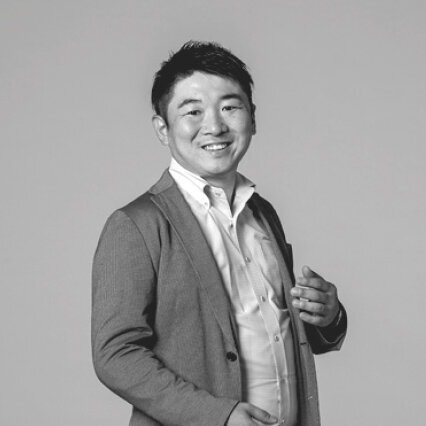
The principle of nuclear fusion itself was established in the 1920s, and full-scale research began after World War II under the leadership of the university. After that, the technology gradually advanced from the 1960s, and since the 1980s, it has been centered on the international framework known as ITER. Japan is one of the few countries that has been a leader in fusion research in the world for more than 70 years since the dawn of fusion research. In the midst of a major turning point in which R & D has been industrialized for many years, the greatest attraction of Kyoto Fusioneering is a startup that is unique even from a global perspective, with members who can industrialize the accumulated technology. I think that is the point.

